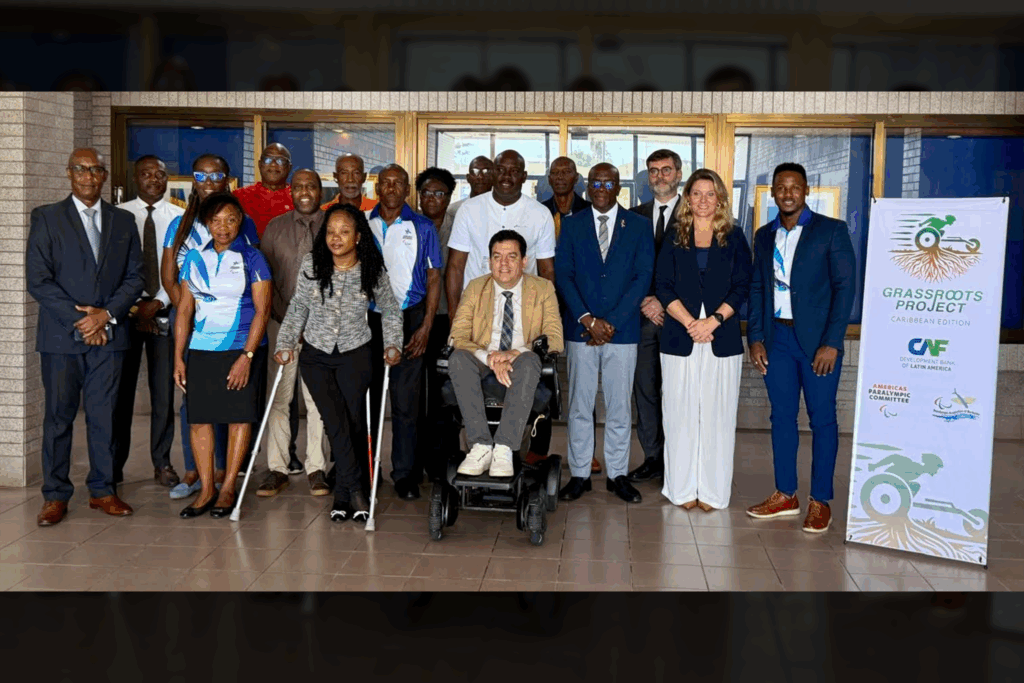The Paralympic Movement in Barbados marked a significant milestone on Wednesday as stakeholders convened at the Garfield Sobers Sports Complex to reveal the outcomes of a transformative pilot project. This initiative, titled the Institutional Strengthening of National Paralympic Committees’ Caribbean Islands Project, was spearheaded by the Americas Paralympic Committee (AmPC) and funded by the Development Bank of Latin America and the Caribbean (CAF). Focusing on Barbados, Jamaica, and Trinidad and Tobago, the project aims to foster social inclusion through sports.
Central to the project is the goal of enhancing institutional capacity to ensure the growth of parasport at both elite and grassroots levels. Ryan Brathwaite, the newly appointed President of the Paralympic Association of Barbados (PAB), emphasized the profound personal and symbolic significance of this moment. ‘Sport is about access, dignity, and belonging,’ Brathwaite stated. ‘Yesterday’s inaugural Parasport Festival wasn’t just a showcase — it was a statement. A space for students, para-athletes, and the public to see, feel, and understand the power of inclusive sport.’
Brathwaite further highlighted that the initiative transcends a mere project, representing a shared belief in the transformative power of sports. ‘This collaboration represents more than a project,’ he said. ‘It’s a shared belief that sport can transform lives — and now, we have a roadmap to make that belief real.’
Michelle Formonte, Executive Director of AmPC, detailed the project’s achievements over the past 16 months, which included examining national sports policies, auditing infrastructure accessibility, and training a new generation of coaches, classifiers, and officials—71% of whom are women. ‘This isn’t the end,’ Formonte remarked. ‘Today we celebrate results, but we also plant a seed.’
Juan Pablo Salazar, CAF’s Director of Inclusion, stressed the necessity of regulatory reform and long-term structural support. While Barbados led in accessibility among the pilot nations, Salazar underscored that true inclusion requires more than goodwill. ‘Right now, we have great people like Ryan, Martin, and the rest of the team,’ he said. ‘But this can’t depend solely on individuals. We need laws and institutions that ensure access to sport is a guaranteed right, not a fortunate exception.’
Salazar also pointed out the broader societal impact of inclusive systems in sports. ‘When we create inclusive systems in sport, we’re not just building athletes — we’re changing how society sees and includes persons with disabilities across the board,’ he explained. ‘That’s why this project matters. It’s a template for how inclusion can be embedded into public life.’
The project resonated deeply with the local government. Ryan Straughan, Minister in the Ministry of Finance, shared a personal story about his autistic son benefiting from the late Michael Young’s Adaptive Aquatics programme. Straughan announced a $100,000 commitment to continue this legacy through training at Camp Aquarius.
Charles Griffith, Minister of Youth, Sport, and Community Empowerment, echoed this sentiment, vowing to increase Barbados’ representation in future Paralympics. ‘We had only one athlete at the last Paralympics,’ he said. ‘Never again.’ Plans include a coaching exchange with Nippon Sports and Science University in Japan and upgrading facilities for accessibility.
The event underscored Barbados’ readiness to lead by example in the region. With robust partnerships, dedicated leadership, and growing public awareness, parasport in the Caribbean is gaining the structure and visibility needed to thrive.
